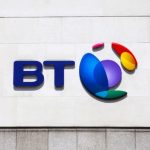Twitter suffers global outages

For many people around the globe, Twitter was inaccessible today. The site suffered problems that affected its web and mobile faces, and it didn’t take long for the #twitterdown hashtag to start trending.
The problem was confirmed -- somehow -- on Twitter by the Twitter Support account, and the developer API status page showed that there were issues with no fewer than four APIs. On Monday, Twitter suffered a brief outage, but Tuesday's was rather longer.
AMD says SYSmark benchmarks are Intel-biased and don't reflect real-world usage

Chip maker AMD has complained that the popular benchmarking tool SYSmark is biased toward rival Intel. The company says that the software focuses far too much on CPU activity and that this is not reflective of real-world computer use.
In a stern video, John Hampton and Tony Salinas from AMD compare SYSmark benchmark with results from Futuremark's PCMark 8 as well as scripts devised in-house. Comparing an Intel Core i5 with a 'comparable' AMD FX chip, SYSmark was found to report a much greater performance difference -- in Intel's favor. AMD describes this as "quite astonishing and not realistic".
Apple dismisses diversity proposal to shake up board of directors as 'unduly burdensome'

A call by shareholders to do more to increase diversity on Apple's board of directors has been soundly rejected by the company. The board is currently predominantly white and male, leading to calls for an "accelerated recruitment policy requiring Apple to increase the diversity of senior management and its board of directors".
But in a proxy statement, the board can be seen to have voted against the proposal, saying that it would be "unduly burdensome and not necessary because Apple has demonstrated to shareholders its commitment to inclusion and diversity". The result of the vote will come as something of a surprise as Tim Cook has admitted that the company has much to do to improve diversity.
BlackBerry denies existence of security backdoors and blames 'cracked' encryption on user error

BlackBerry has spoken out to deny claims that its encryption has been cracked by groups associated with the police in the Netherlands. The company has long-prided itself on the level of security it offers, but that security has been called into question recently.
Reports circulated that Mexican drug lord El Chapo was able to be found partly because of his decision to use a BlackBerry (specifically a BlackBerry Z30, fact fans) to arrange interviews with actor Sean Penn. Coming after claims by the Netherlands Forensic Institute (NFI) that it had been able to decrypt hundreds of encrypted emails on a BlackBerry handset, the Canadian company felt compelled to respond -- by blaming user error.
Unable to spark interest in Windows 10 Mobile, Microsoft infects iOS and Android like a cancer

At the moment, Microsoft is all about Windows 10. Such is the company's focus on its desktop operating system, that you would be forgiven for forgetting that Windows 10 Mobile is on the way as well. But here Microsoft has a problem. Not only has Windows 10 Mobile failed to infiltrate the public consciousness, those who are aware of the impending release are singularly indifferent to it.
Clearly Microsoft is not happy about this, but there's not much that can be done to force people into using Windows 10 Mobile (although given the company's track record with pushing Windows 10 to desktops, nothing would come as a surprise). Instead, Microsoft is having to content itself by spreading cancerously to iOS and Android, spreading the diseases of Cortana, the Word Flow keyboard and more to rival platforms.
ISIS has its own secure messaging system -- this illustrates the futility of communication surveillance

Moves by governments to monitor web-based communication with a view to thwarting terrorism is utterly, utterly futile. Just like the NSA's dragnet-style dredging for intelligence, mass communication surveillance does little to home in on target -- the ones that government should be concerned about are the very ones who know who to evade detection.
This is something that was perfectly demonstrated this week when it became apparent that ISIS has developed its own secure messaging system. No longer reliant on the likes of WhatsApp, ISIS is using a custom-built, Android-based encrypted messaging tool that is incredibly difficult -- if not impossible -- for the FBI and NSA to monitor.
Microsoft gets aggressive -- after 18 months nextgen CPUs like Skylake will only support Windows 10

Microsoft's aggressive pushing of Windows 10 is becoming legendary, with everything from irritating nag screens, to automatic downloading of set up files. Now things are taking a slightly different turn as the company says that after July 17, 2017, 6th generation Intel Core Skylake processors and other nextgen CPUs will no longer be supported for Windows 7 and Windows 8.1.
The announcement comes somewhat out of the blue, and is all the more surprising considering Microsoft's track record of lengthy support periods. Once the new deadline is reached, Microsoft says that it will only release the "most critical" security patches to these now-unsupported platforms, and even then the patches will only be made available if they do not "risk the reliability or compatibility" of other systems.
Interactive Advertising Bureau 'dis-invites' Adblock Plus from annual conference

Adblock Plus has been blocked from attending the IAB's (Interactive Advertising Bureau) upcoming leadership summit. The company has attended the meeting in the past, and had received an invite to this year's conference too -- but the IAB had a change of heart and retracted the invitation.
The meeting would have been an opportunity to meet with advertisers and to discuss Adblock Plus' Acceptable Ads guidelines later this week, but the IAB -- for reasons as yet undisclosed -- feels differently. In the interests of transparency (or airing dirty laundry in public, depending on your opinion), Adblock Plus has decided to go public with what's been happening.
At long, long last, Google Play gains promo codes for apps and games

Google has finally caught up with Apple, and is now offering support for promo codes in Google Play. This is a feature that has long been available to iOS users, but it's only after years of complaining that Android users are, at long last, being afforded the same luxury.
Oddly, Google has decided to place some restrictions on how promo codes can be used. While developers can generate codes that can be used to purchase apps or to make in-app purchases, they are limited to creating 500 codes per quarter.
BT's merger with EE gains official clearance -- and industry objections

The Competition and Markets Authority (CMA) has given BT the go-ahead for a takeover of EE. The merger of the largest mobile provider in the UK with the country's largest landline provider creates a giant that rivals are concerned about.
The newly conceived communications behemoth has fingers in not only mobile and landline pies, but also TV and broadband. While the CMA's decision is not a surprise, rivals such as Vodafone, TalkTalk and Sky have voiced their disapproval, saying that the merger will have a negative impact on competition.
Proxies and VPNs to be blocked by Netflix

Netflix is set to clamp down on VPNs and proxy tools used to access its services. A large proportion of Netflix content is region specific, and to get around licensing issues it has become increasingly common for people to spoof their location so they can watch their desired videos.
Netflix says it is doing what it can to ensure that people around the world have access to the same content, but until this is officially the case, the company is looking to enforce geographic restrictions more stringently. In the coming weeks, anyone who uses a proxy is likely to find it impossible to access content that is not licensed for viewing in their country.
Microsoft starts a renewed Windows 10 push aimed at businesses

Microsoft has been quick to brag about the adoption rate of Windows 10, proudly crowing every time another few million devices make the upgrade. We're currently sitting at around the 200 million mark (apparently), but the bulk of this number is made up of home users. Now Microsoft wants to encourage more businesses to make the jump from Windows 7 and Windows 8.1.
The next leg of the company's aggressive Windows 10 campaign is aimed squarely at SMBs who can now expect to be pestered by the "Get Windows 10" app in the same way as non-business users have for the last six months. Aware that taking the upgrade process out of the hands of IT admins might not go down too well, Microsoft is providing a way to opt out of these notifications.
Sharing ransomware code for educational purposes is asking for trouble

Trend Micro may still be smarting from the revelation that there was a serious vulnerability in its Password Manager tool, but today the security company warns of the dangers of sharing ransomware source code.
The company says that those who discover vulnerabilities need to think carefully about sharing details of their findings with the wider public as there is great potential for this information to be misused, even if it is released for educational purposes. It says that "even with the best intentions, improper disclosure of sensitive information can lead to complicated, and sometimes even troublesome scenarios".
Updated Android.Bankosy malware steals passwords sent through voice calls

Around a year and a half ago, Symantec warned about the personal data stealing malware Android.Bankosy. Now the Trojan has been updated so it can steal passwords delivered via voice call-based two-factor authorization systems.
Such 2FA systems are often used by banks to communicate one-time passcodes to people. While these have usually been delivered via SMS, voice call delivery is becoming increasingly common. Malware makers are keen not to miss out on data stealing opportunities, and the Android.Bankosy introduces a call-forwarding feature that sends 2FA calls to a C&C server so the code can be intercepted and exploited.
H.265/HEVC offers 50 percent bitrate savings over H.264/AVC

Following exhaustive tests, a BBC research team has confirmed that the H.265/HEVC video compression standard offers huge bitrate savings compared to H.264/AVC. The BBC R&D video coding research team focused primarily on UHD content and found bitrate savings of up to 50 percent.
With more and more content being streamed, and increasing demand for high definition and UHD content, finding ways to most efficiently deliver video will become increasingly important. The study found that greater savings were possible with larger pictures -- something the corporation says is key to the future of UHD delivery.
Sofia Elizabella's Bio
Sofia Wyciślik-Wilson is a queer, transgender journalist based in Poland. She has been writing about technology for more than two decades, and after years working for magazines, her writing moved online. She is fueled by literature, music, nature, and vegetables. You can find her on Bluesky and Mastodon. If you like what you read, you can Buy her a Coffee!
© 1998-2025 BetaNews, Inc. All Rights Reserved. Privacy Policy - Cookie Policy.
